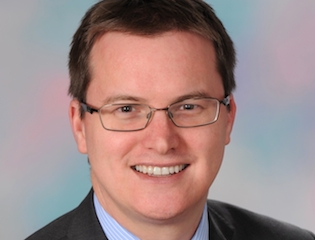I write this aware that this is truly a 'First World Problem', so to speak, but political risk is a huge concern for those currently involved in pension planning.
In the run up to a general election, the future of tax relief on pension contributions is one uncertain area that is not too troubling to manage (it is a variant of use it or lose it).
{desktop}{/desktop}{mobile}{/mobile}
The more disturbing aspects are the future of the tax-free cash sum and the inheritability of pension savings being introduced on 6 April 2015. The generous extension of tax-free benefits on death to cover funds in drawdown (up to age 75) at least means that taking the tax-free pension commencement lump sum earlier than is necessary does not interfere with death benefits. However, it is the tax-free nature of death benefits that brings about a new dilemma.
We are all excited about the ability to cascade pension funds down from one generation to another, yet this relies on the rules remaining intact from generation to generation. A straw poll at a seminar at Barnett Waddingham that I chaired indicated that no one in the audience thought the new rules would last a parliament, let alone one or more generations.
On the death of a 'drawdowner' under the age of 75, the new rules would allow a tax-free lump sum payment, or funds to be kept in drawdown with the drawdown income being paid to a beneficiary tax-free.
{desktop}{/desktop}{mobile}{/mobile}
Knowing that the income will always be tax-free and that the beneficiary isn't in need of all of the drawdown funds at once, one would think that keeping the money within a pension environment would usually be most sensible: why pay tax on investment income and capital gains when you don't need to?
The drawdown withdrawals are income that happens to be exempted from income tax by virtue of little more than a page of legislation. This suggests to me that it would be very easy to remove that exemption. A more robust method would have been to have allowed the tax-free lump sum death benefit to be allocated in the scheme and distributed over a period of, say, 20 years. This would have achieved a virtual 20 year planning period where there would little chance of interference in the rules.
We don't have that: we have an exemption to income tax. So, anyone advising on the strategy of selecting a drawdown fund instead of a lump sum payment would need to flag political risk: the drawdown strategy only works whilst the rules remain as they are. If income tax becomes payable on withdrawals, the extra tax could dwarf the amount saved by leaving funds invested in a tax-efficient way.
Without any cross party consensus on keeping rules as they are, I can see the bird in the hand rule taking charge when it comes to distributing death benefits. This would mean paying lump sums if death occurs before age 75. As with the early payment of the pension commencement lump sum, decisions are being driven by political risk, which means optimal solutions are hard to achieve.
Andrew Roberts, Partner, Barnett Waddingham LLP
@andrewddroberts

